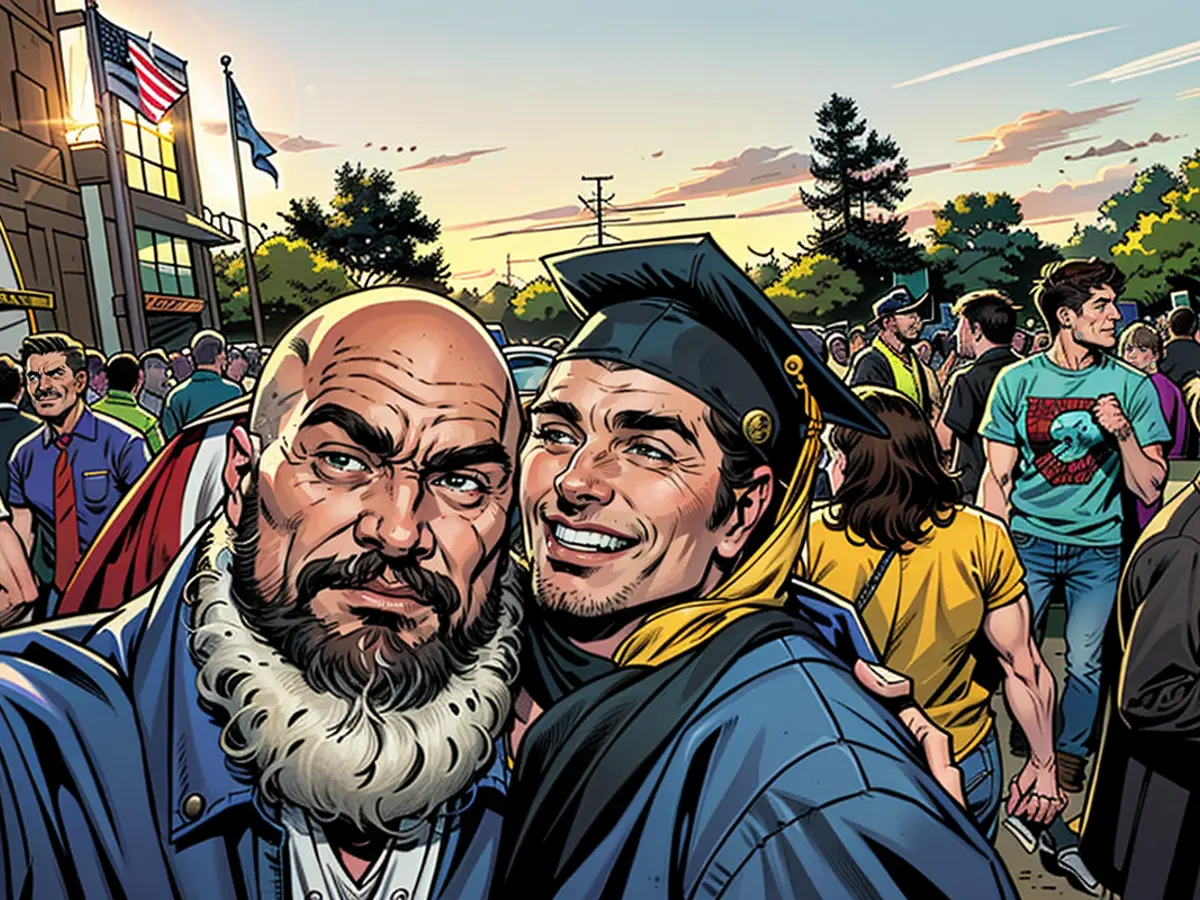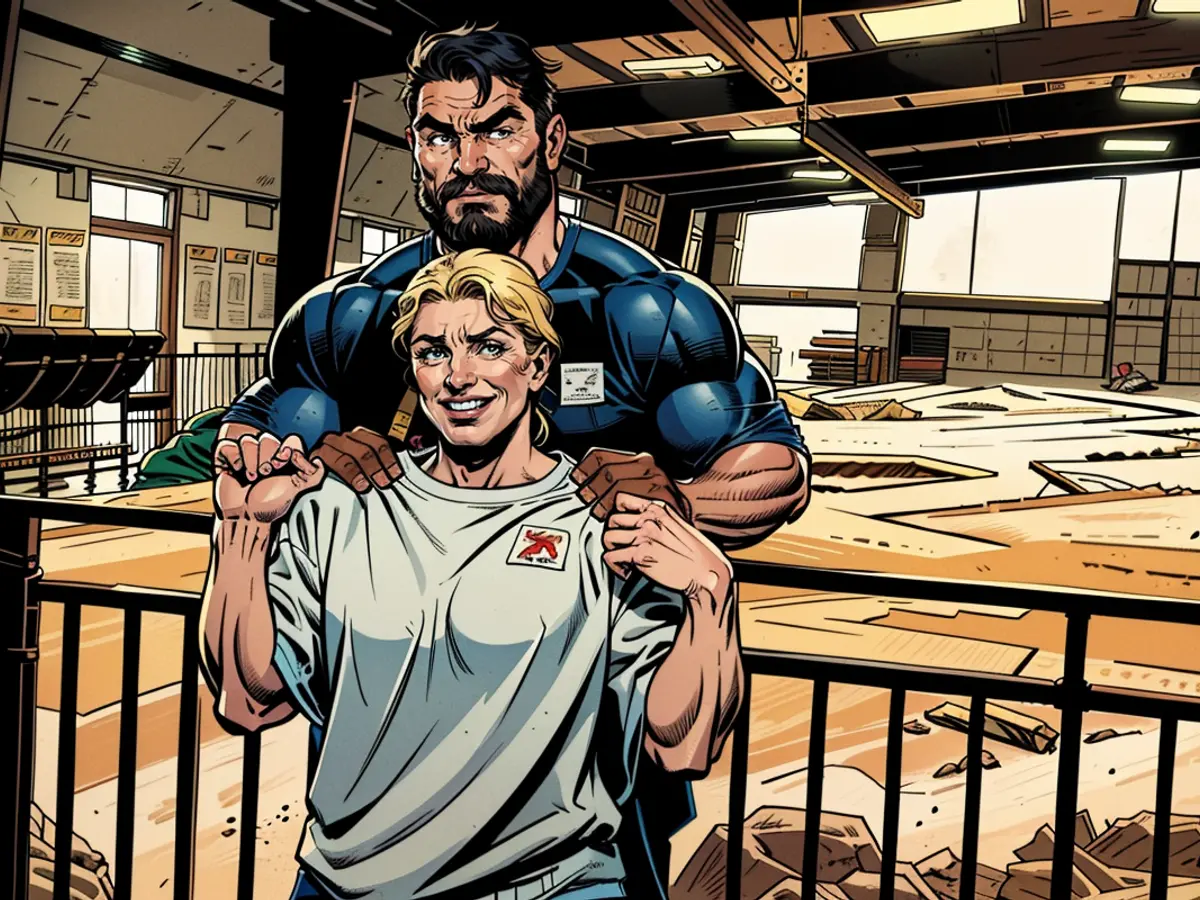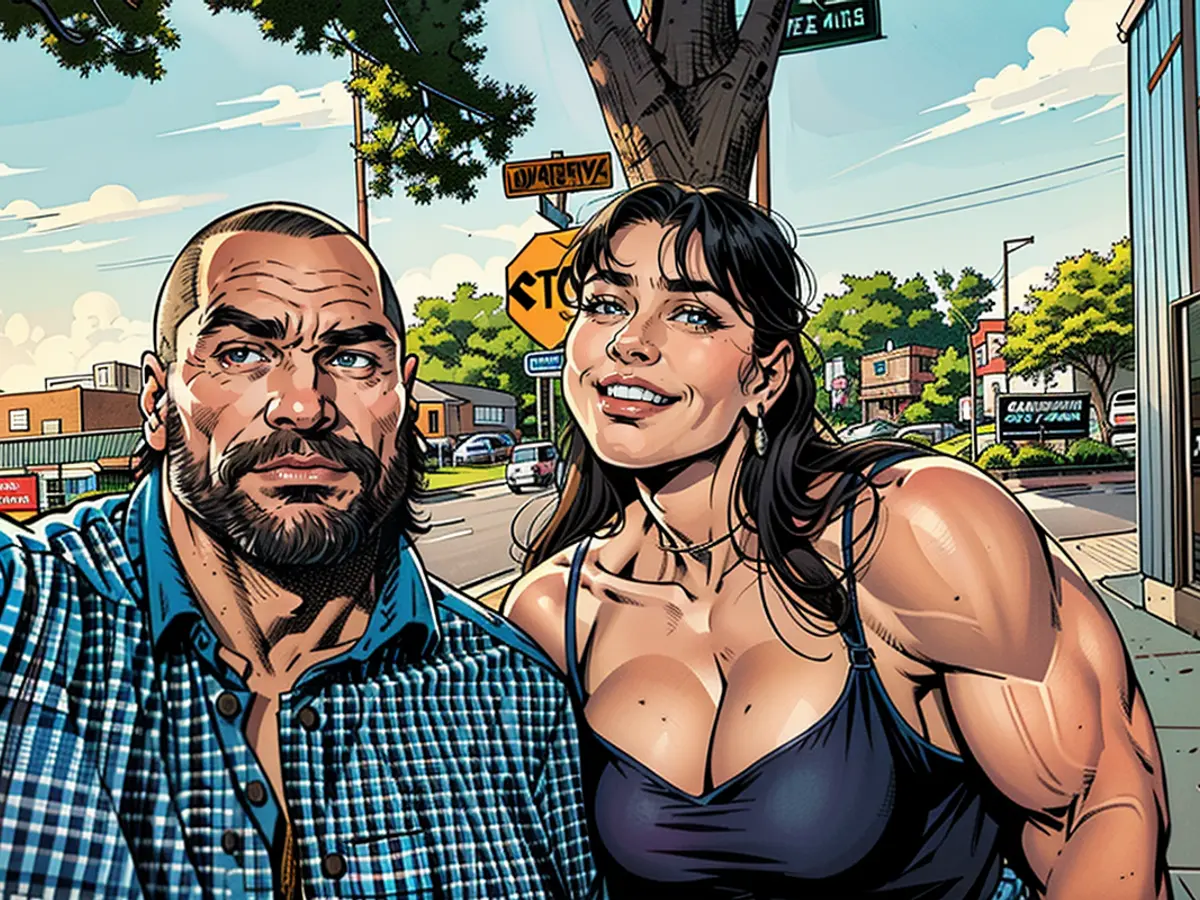My daughter came out, and I missed the punchline
Here are Vivi’s words:
I sat in the car with my dad and spit it out.
“Dad, I’m gay,” I said.
In the two seconds of silence that followed, I wasn’t scared of how he would respond. I simply wondered how he would handle it. His oldest child and his only daughter just announced to him that she is something different than what’s considered traditional. Another part of me considered his background. How would his Southern roots react to the unusual?
His response: “You still have to mow the lawn. And we are going to have pizza for dinner.”
Back to me, Vivi’s dad. I will never forgive myself for my boring response. I did not say, “Hi Gay, I’m Dad.” She set me up with the perfect dad joke opportunity, and I missed it. This has haunted me for the last three years.
But seriously. I am honored that my daughter trusted me enough to know I would be there for her, even if she had her doubts.
I worry more about what other parents might say to their children because I know there is a lot that parents get right and wrong when our children are brave enough to talk to us about their sexuality.
Let’s be clear here — the stakes are high. The Trevor Project reports that 41% of LGBTQ+ young people have considered suicide, while 28% have reported being homeless because of their orientation. All this comes with depression, anxiety and even self-harming behaviors.
This was on my mind when my daughter decided to tell her story.

What do parents get right and wrong when our kids come out
I know that how men respond as fathers to this most vulnerable moment has plenty of far-reaching consequences. So, what do we do?
“The biggest risk is this irreversible fractioning of the relationship between the teen and the dad,” said James Moran, director of education and public relations at Our Spot KC in Kansas City, Missouri, which provides housing, technical assistance and other support for the local LGBTQ+ community. “This can translate into difficulty forming relationships, housing, low self-esteem, and not having basic adult skills as a result of this conflict and lack of support.”
How should a father react when our teens come out to us? Moran has advice.
“Thank you for trusting me with that,” Moran suggested. Or “How can I support you? I don’t think young folks are looking for you to be an expert but need you to show your support and heart even if the words come out wrong.”
That was what I tried to communicate in my response to my daughter. I wanted her to know that this was normal and no big deal. And since it wasn’t a big deal, life needed to continue, and the grass was getting long. Plus, who doesn’t love pizza for dinner?
As she said recently, “I understand my privilege to say that I was not scared to come out to my father. I recognize that I have a family that loves me, supports me, and will always have my back. My father has never been one to follow the tradition, so why should I?”
Knowing we are a family of gender-norm breakers, my daughter was referring to my role as an at-home dad for the last 16 years. And although I am proud that she had the confidence to be herself with me, my response wasn’t perfect. I became concerned about how the world would treat her.

Are we overprotective of our LGBTQ+ teens?
No doubt parents are scared for their children to be “out” in the world, but at what cost?
One mistake parents often make “is prioritizing the protection of our kids over their identity,” Moran said.
Some parents ask their kids to “not be gay in public” or “don’t show it anywhere.” On the surface, that seems offensive. But it did cross my mind when I asked my daughter if she wanted to tell her story to help dads and their daughters.
Her immediate response was yes, and then I was worried, even though it was my idea. It is not uncommon to get hateful comments on the articles that I write. My favorite is being accused of being “less of a man” because I’m an at-home dad. Am I bringing that to my daughter?
Fear and hate drive some people to acts of violence. CNN’s article about LGBTQ rights and milestones details the struggles and discrimination that many in the community have faced. Wouldn’t it be easier if she didn’t tell her story and not come out to the entire world?
No, it wouldn’t be easier for her. It would mean she couldn’t be herself, and I’ve failed as a father if I would ever let that happen. It is important to me that she has agency in her life, and that begins by embracing who she is at her core, without apology.
As I wrote this article, my daughter, her girlfriend and I talked about the advice they could give others who were going through the same coming out process. They told me to “just, as a dad, normalize it, and don’t treat us differently than others. It’s not a big deal.”
Their statement makes me smile because it was said with the nonchalance of youth. Yes, to them it is not a big deal. But my daughter and her girlfriend having the confidence and support to come out and be who they truly are is a very big deal.
They still have to mow the yard though. (But I’ll buy the pizza.)
Shannon Carpenter is a writer, author of the book “The Ultimate Stay-at-Home Dad” and married father of three.
After acknowledging the challenges faced by LGBTQ+ youth, Vivi's father reflects on the importance of parents supporting their children's identities rather than prioritizing their protection. He shares that his daughter and her girlfriend advised him to treat them "normally" and not differently, emphasizing that it's not a big deal to them. However, Vivi's father understands the significance of his daughter's courage to be herself. To further support her wellness and health, he ensures they still have tasks to do, such as mowing the lawn, while also treating them to pizza.
Recognizing the impact of a supportive father in shaping his daughter's self-esteem and adult skills, Vivi's father reflects on his own response when she came out as gay, expressing regret for not making her coming out moment more special. He emphasizes the importance of parents being there for their LGBTQ+ children, even if they make mistakes in handling that vulnerable moment.








